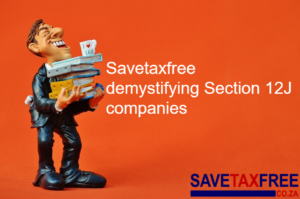Investing to buy a car? A simple plan to ensure you can afford that flashy new ride
Related Articles
Ridwaan Moolla | 30 January 2018
Ask any investor or advisor about buying a car and the answer is usually “a car is not an investment but a liability.” As much I agree with this statement and as much as I have preached this myself, the reality is, South Africans love their cars and they’ve also become a symbol that says: “I have made it”.
With time, my approach to this “buying a car moment” of one’s life has changed. I now know that regardless of what anyone says you are going to buy that nice car when you start working and yes, I already know the excuses: “South Africa doesn’t have a very good public transport system,” or – if you’re about to buy your next car – the classic: “Cars are only built to last five years or 100,000km.”
With this in mind I’ve decided it’s time to help people achieve a very different goal which not only takes into account the need to invest, but also the “need” for a new car every five years.
Please note that I do not believe in residuals and balloon payments, nor do I believe you should be financing a car for more than five years – they only last five years after all, apparently!
So how does this work. Let’s start with a person starting out and buying their first car. He/she believes they can afford R5,000 a month over five years. This means they’re looking at buying a car at around R220,000 at an interest rate of 12.25% over five years, excluding insurance and the like.
My suggestion in this instance would be that you rather look at buying a car with monthly repayments of not more than R4,000 and put that extra R1,000 into a short- or medium-term investment of about five years. At the end of the five-year period, as we all know, you’re likely itching to buy that bigger, better and faster car. Now let me explain how you’re going to do this, and why you’ll be glad you put away that extra R1,000.
So you buy a car for R175,000 and pay R4,000 a month for five years. You invest the extra R1,000 in a low-risk investment – and investing in an exchange-traded fund through a tax-free savings account is ideal for this. Now let’s assume that this investment grows at a rate of 12% a year, and to keep things simple, imagine the R12,000 you’re investing annually is growing by 12% a year. After five years you have just over R80,000. Now, depending on the car you’ve bought, let’s assume it has halved in value and is now worth R87,500.
So, you sell it for R87,500 and add the R80,000 from your investment: you now have a deposit of R167,500 for your next car. This means you can keep the monthly repayments at R4,000.00, but this time you’re buying a car worth over R300,000.00! And the nice part of it all? It is likely that your salary has increased over the last five years of working, and this means if you’d invested that extra amount, you’re now likely to have even more money to buy an even bigger, shinier model.
To sum up the theory, what I’m saying is that for your first five years, buy a car worth slightly less than what you know you can afford and invest the balance. By doing this you will start learning how investments work and also start realising why investing is going to be so important for you later in life. After five years you can own the statement, “I have really made it!”
Also, if you keep repeating the cycle and try keep your payments and investments exactly the same, after five years you could be selling your bigger model for around R150,000. Add the invested amount of R80 000 and you can buy your next car for over R400,000 while still paying instalments of only R4,000 a month. Alternatively, you keep the car as it works fine and invest R5,000 every month, and before you know it you’re buying your next car for cash!
Ridwaan Moolla is head of digital enablement, wealth, investment management & insurance at Absa Stockbrokers
*Disclaimer – Please note that the above is an example of a theory and not real values have been used nor any real market data used. All figures and examples are used to illustrate a point and no way can the writer nor any other person be held accountable. If you not sure about investing please speak to a qualified advisor.






